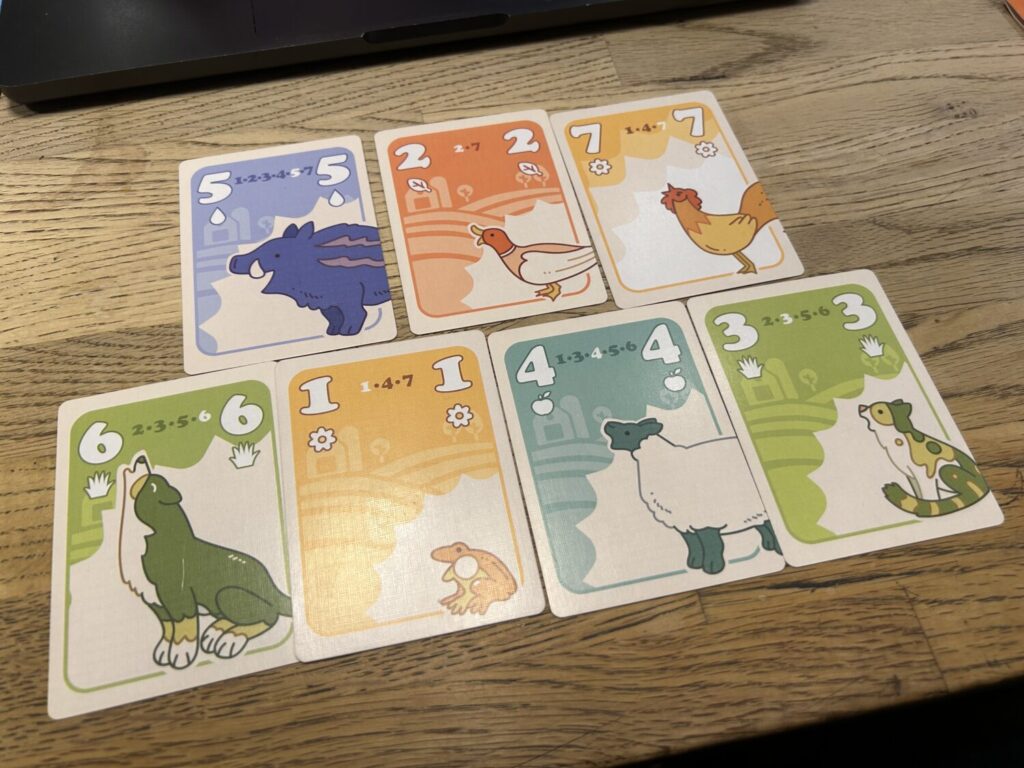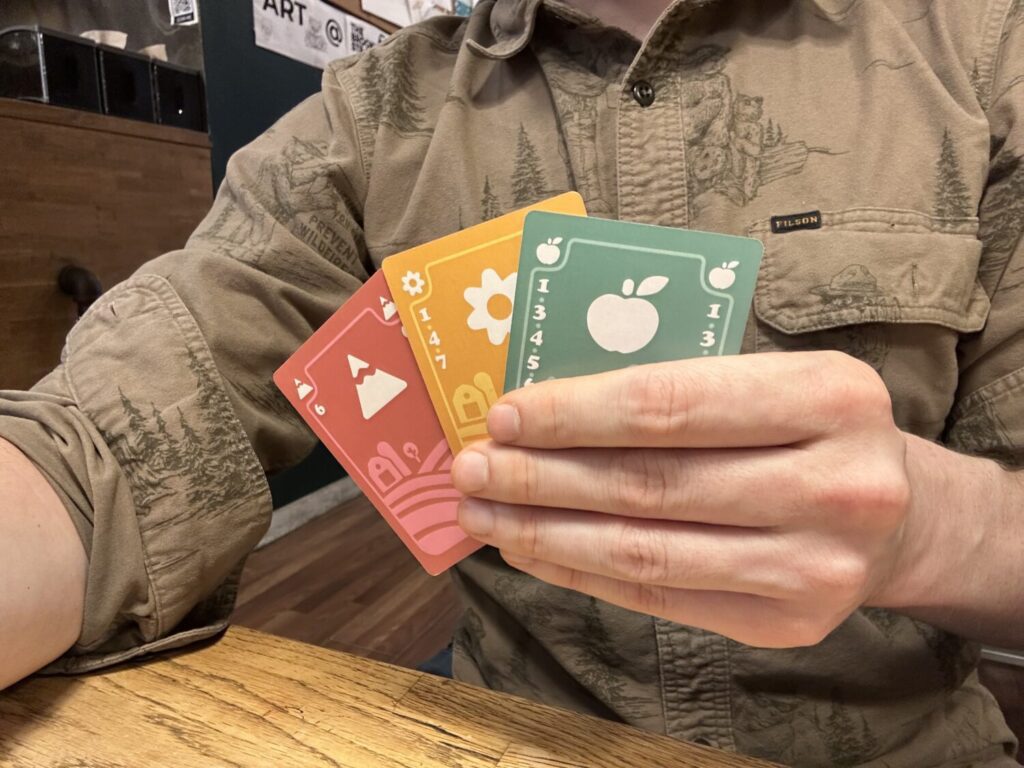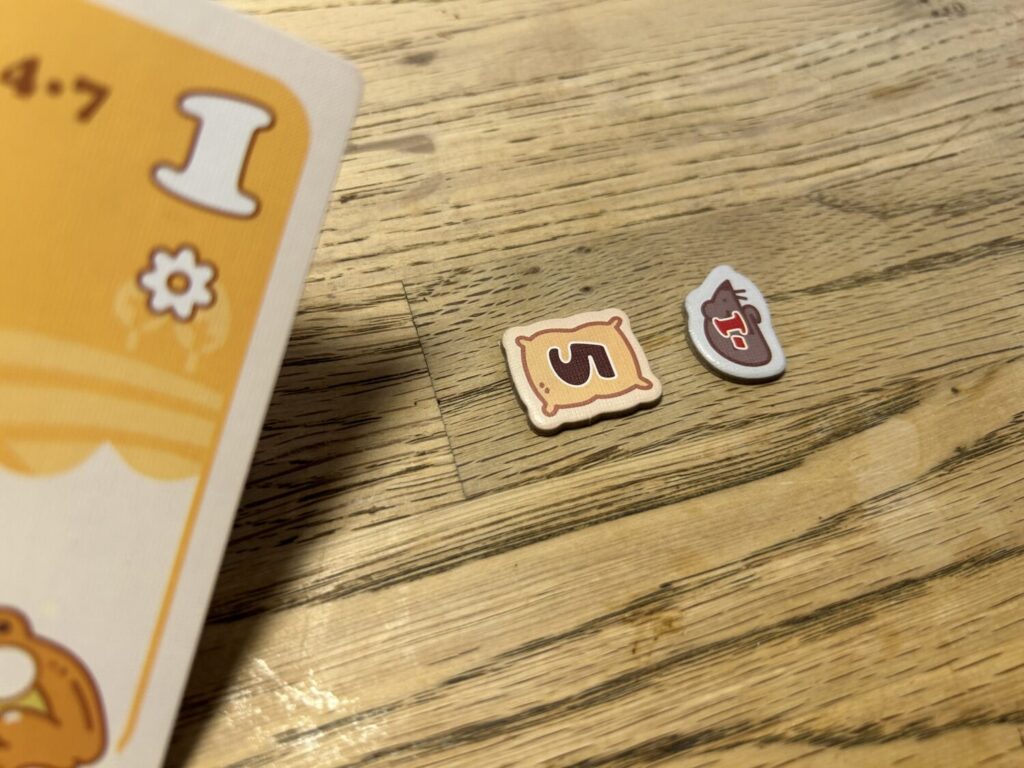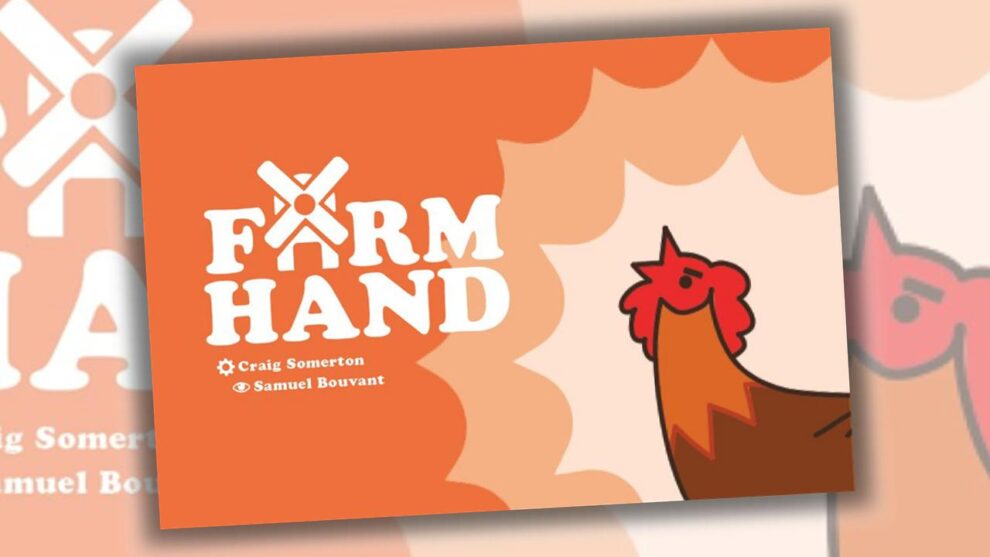Disclosure: Meeple Mountain received a free copy of this product in exchange for an honest, unbiased review. This review is not intended to be an endorsement.
Farm Hand, from designer Craig E. Somerton and publisher Grail Games, is an absolute charmer of a card game. This is thanks not only to the efforts of artist Samuel Bouvant, though he certainly deserves significant credit, but also to the game itself, a straightforward trick-taker with some clever twists up its sleeve.
Farm Hand is a must-follow trick-taking game with six suits, each with numbers ranging from 1-7. At the start of each hand, players bid on the number of tricks they want to win. If you make your bid, no matter the bid, you score a fixed number of points for the round. If you miss your bid, whether by overshooting or falling short, you lose points equal to the difference between your bid and reality.

That’s familiar enough, a more forgiving blend of the bidding systems in traditional games like Spades and Oh Hell. Given that those are two of my favorite card games, they’re a fine place to start. Farm Hand even uses Oh Hell’s growing hand size, with each round involving more cards than the last. But Farm Hand doesn’t stop there.
Each suit has a different distribution of cards, whether that be Rain’s 1-2-3-4-5-7, Tuft of Grass’s 2-3-5-6, or even Mountain’s lone 6, and each card’s suit is identified on the back of the card. I don’t know whether your Leaf is a 2 or a 7, but I know it’s a Leaf. And while Farm Hand is must-follow, the winning card doesn’t need to be on suit. The highest card wins, regardless of suit, unless there’s a tie, in which case the next highest card wins.
These wrinkles contribute to a wonderfully obtuse bidding process. I know the distribution, if not the values, of everyone’s cards, which means I know how often I’ll have to follow and how often I won’t. Over the course of a couple of hands, you figure out how to work that system. The Mountain 6, for example, is a guaranteed win if you want it to be; you will always be able to play it into a trick in which you are short-suited.

As with any good trick-taking game, nothing is entirely transparent. I’ve seen a player win an unwanted trick with a 1 thanks to that tie-breaking rule. It can be hard to thread the needle on how many tricks you’ll win, but it’s nowhere near impossible. Just tricky. Perhaps the best accomplishment in Farm Hand is the way it does away with good and bad hands. Because scoring is entirely dependent on how accurate you are with your bid, a weak hand is just as good as a strong one.
While any one game of Farm Hand is far too quick for it to wear out its welcome, this isn’t something you’re likely to want to play again and again. Like any good farmer, you’ll need to rotate your crops. After four or five plays, I felt like I’d gotten out of it everything I was going to get. Fortunately, it’s such a good introduction to the ways in which stranger trick-takers play with the genre that you can easily move the table on to something a bit meatier. As an appetizer, though, Farm Hand is a delight.












